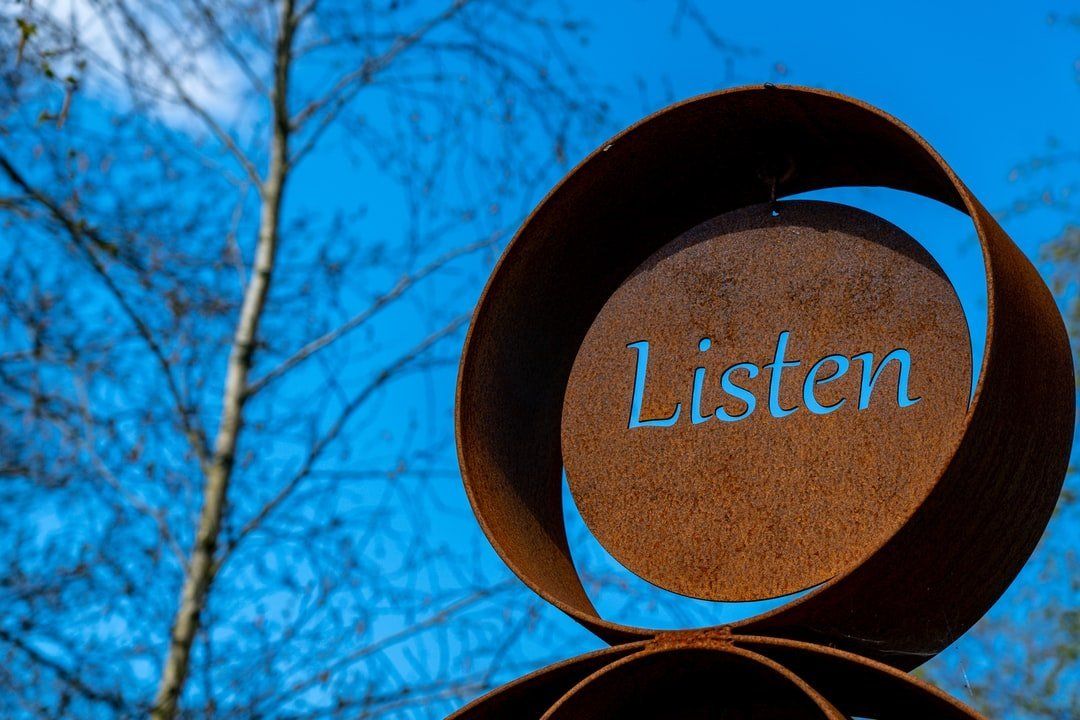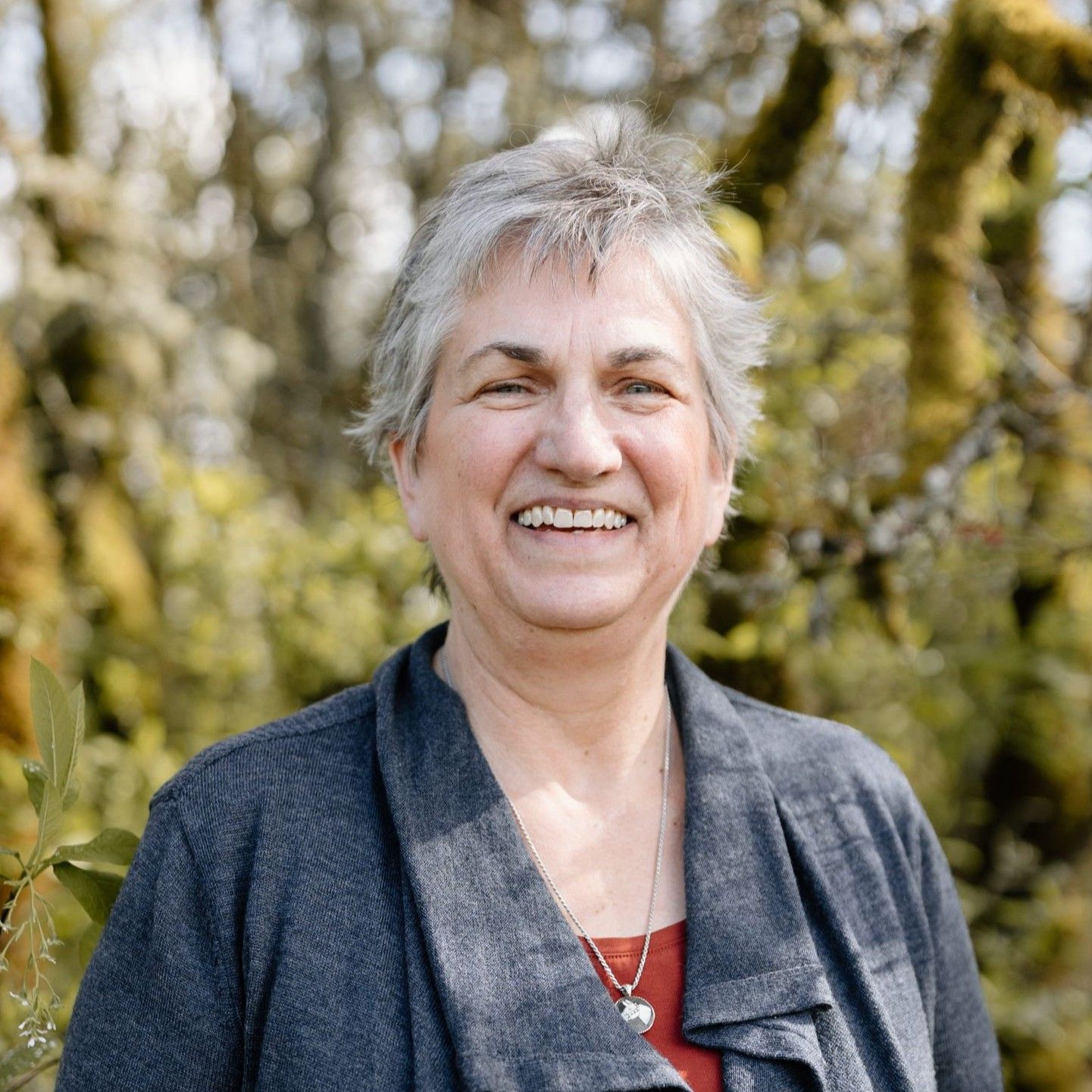Listening: The Ground of Social Justice
Dec 13
/
Kathi Gatlin

We are living in such a divisive time. People are on different sides of vaccine and mask mandates, and the power struggle is real inside so many school boards. People aren’t listening to one another to find a way forward for the common good or to engage in a conversation with those who think differently than they do. We believe what we believe without really considering what is underneath our beliefs or another’s. I live in Newberg, Oregon - and this battle is very real.
So how is listening helpful in bringing about social justice?
Social justice is a complex topic. Part of the conversation starts with discerning between reacting and responding. Reactivity tends to come from an instinctual place in us. Responding comes from more of a grounded space.
Imagine a time when you reacted - either in a helpful or unhelpful way to a situation. Reflect on where you felt that in your body and notice what you notice. Consider the texture, color, or image that comes to mind.
Then, imagine a time when you felt like you responded from more of a grounded and solid place. Where did you feel that in your body? What texture, color, or image comes to mind with that experience?
Often, when I ask people this question, there is a difference in level. For example, reactivity usually comes from the surface and people point to their head or the heart. A grounded response usually comes from a lower or deeper place where some would say it is located deeper internally - or maybe lower in their gut.
Let me invite you to consider these two examples without judgment and see what you notice about the comparison. Reactions aren’t always negative - running after a child out in traffic or rescuing an animal requires a quick reaction. However, in a debate or a power struggle, a reactive response usually isn’t helpful.
There are a few things to consider when discussing a heated topic from a place of response. The first is to reflect on what you are noticing internally within you. Why is this situation causing you so much turmoil or stress?
Often, the narratives we hold true about ourselves, God, and how the world works shape how we hear, listen, and experience what goes on around us. Sometimes, actually, many times, those narratives are incomplete or distorted. The distortion only makes sense due to these narratives, or our bias, being formed by our previous experiences. When we take the time to notice our discomfort, we can recognize our bias and perhaps see a little more clearly.
Once we recognize why and how an issue is causing us stress, we can discern how and if we need to engage. It is unhelpful if we move forward based on an assessment that someone can’t or won’t do it for themselves. This posture is still based on judgment.
As you go through this process with God and a community that supports you with wise counsel, you may notice the texture of a reactive response moves a little lower internally to a space of grounding. The judgment that causes the internal disruption or violence in us begins to recede, and we are invited by God toward greater freedom and wholeness.
Another thing to consider when engaging in difficult conversations is that the other person isn’t the enemy. Their actions may have been harmful to you or others, even many others, but they are not the enemy. They are created in the image of God, just as you and all of us are. Their actions and words are based on their own narrative of themselves, God, and how the world works. Just like you and me. Keeping an open posture with them is helpful. I have found these words from Thomas Merton as a good starting place.
To say that I am made in the image of God is to say that love is the reason for my existence, for God is love. Love is my true identity. Selflessness is my true self. Love is my true character. Love is my name.[1]
If this is my identity - love - then it is the same for those around me. Even those I disagree with. Before I confront or disagree with another, I need to see the God in them that is also in me. When I consider another as my enemy or the enemy of those I love, I cannot see the God in them. Their actions do not define them, just as my actions do not define me.
When we can see God in the other person and come from a grounded space, we can begin to hear what others are saying. We can then explain our views and allow their views to shape our own. This process takes two to deeply listen to one another as we can begin to collaborate on something that may be a better idea for all. If we are combative with one another, then nothing changes.
That said, collaboration takes both parties being open with one another. In listening deeply with those we disagree with and speaking our truth in the conversation, we can begin to see each other’s views and shape a new thing.
As we host others from a grounded space, we are both invited into being seen, heard, and known. We may follow that invitation where the violence within may be stilled and move toward greater freedom and wholeness. The other party may be open to the possibility as we host them, but they may not. We have seen this happen time and time again through these last few years.
Regardless, we can love them and ourselves. And in loving ourselves and the world we live in, we can do the things that bring about change. It isn’t in being combative. It is about speaking our truth with courage and love. When some do not listen, others will, and we keep doing what we have discerned is our way forward.
It can get frustrating. We can educate ourselves about the systemic injustices of our world, for there are many. That way, we can live intentionally to treat ourselves and those around us as beloved. We can vote, send in letters, sign recalls, speak up and be seen with love and compassion for all involved. As John Lewis is quoted as saying - we can cause good and necessary trouble. As a follower of Christ, can we really be faithful in doing less?
I have written previously about Listening with Hospitality and Contemplative Listening as a non-judgmental space. Check them out to gain a clearer understanding of this posture of listening.
If you would like to learn more about listening in this way, join our 3-Way Listening Series coming up on February 3rd. If you are curious and need more information, I am hosting 2 free conversations in January to get a taste of what 3-Way Listening is. Sign up for one of them here.
Notes:
1 Thomas Merton, New Seeds of Contemplation, Reissue (New York: New Directions Books, 2007), p 60.

Kathi Gatlin
Kathi Gatlin co-founded the Companioning Center and founded Boldly Loved to bring together her two greatest passions: spiritual formation and teaching. Walking alongside others in their spiritual journey, whether individually or in groups, brings her immense joy. She loves sharing the contemplative life and exploring ways of understanding God with others. Ultimately, seeing companions grow deeper in their own understanding of who God is and who they are in relationship with God is her faithfulness.
Kathi is a trained spiritual director, supervisor, writer, spiritual formation group facilitator, retreat speaker, leadership mentor, and adjunct professor with George Fox University and Portland Seminary.
Kathi has two grown daughters and five delightful grandchildren. She enjoys coffee, chocolate, deep conversations, reading the mystics, and walking in trees with her Covid puppy, Oliver. http://www.boldlyloved.org

